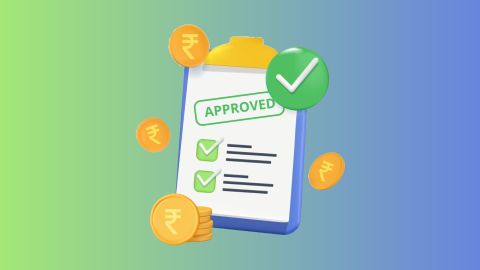Lenders follow a few basic norms before approving a loan application. As you would be repaying the loan EMIs from your income, your monthly earnings would indicate to them how likely you would be able to repay the loan amount. This makes it an important parameter before they approve your loan application.
Why do lenders need income verification?
Lenders verify the information provided by you in your application before the disbursal of your loan. To determine the loan repayment capacity of the borrower, an income verification test could be conducted by the lenders to verify the income as mentioned in the loan application.
But, not all borrowers are required to face the test. Suppose your credit score is within a particular range that requires income verification, or perhaps there is a perceived disparity between your income and job title. In that case, you might have to go through the process to verify your income.
How do lenders verify your income?
The first step towards verifying your income and getting your loan approved is submitting the lender's right documents, like KYC documents, bank statements, income statements, etc. In the case of a personal loan, the documentation required is far less, and you can get a quick approval after a few basic checks.
You can avail of special pre-approved offers on home loans, business loans, EMI financing of products, and other financial services from Bajaj Finserv. All you need to do is share a few basic details to check out the offer and submit the required documents online to get instant approval.
Here are some key verification parameters that your lending organization will dig into while verifying your income:
1. Income tax returns
Your IT return is one of the most important documents that can verify your income and repayment capability. You may be required to provide the IT returns of the past three years to represent your average income during these years.
2. Current fiscal profit and loss statement
If you are a self-employed individual, the current year’s profit and loss account statement will justify the health of your business and the income generated through it.
3. The net worth of your assets
The lender may assess an individual’s assets to undermine the net worth and income scenario. They consider the value of your assets like home, car, etc., and add depletion and depreciation to estimate your income.
4. Credit history
The credit report is the testimony of your financial character and holds the record for past dealings and present liabilities. An individual with a good credit score finds an easy path to loan approval.
It’s best to maintain a good credit history and keep your documents to ensure there’s no need for additional proof and that trust is maintained. Ensure that the records accurately reflect reality, so there’s no discrepancy. With these pointers in mind, you’ll be able to ace the income verification test.
DISCLAIMER:
While care is taken to update the information, products, and services included in or available on our website and related platforms/websites, there may be inadvertent inaccuracies or typographical errors or delays in updating the information. The material contained in this site, and on associated web pages, is for reference and general information purpose and the details mentioned in the respective product/service document shall prevail in case of any inconsistency. Subscribers and users should seek professional advice before acting on the basis of the information contained herein. Please take an informed decision with respect to any product or service after going through the relevant product/service document and applicable terms and conditions. In case any inconsistencies observed, please click on reach us.
*Terms and conditions apply








